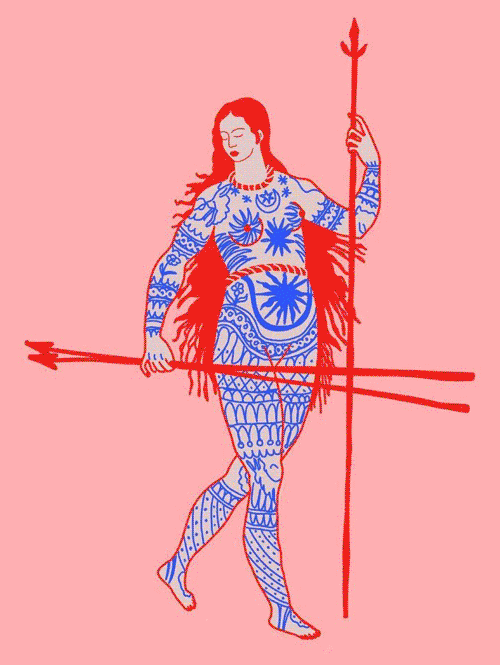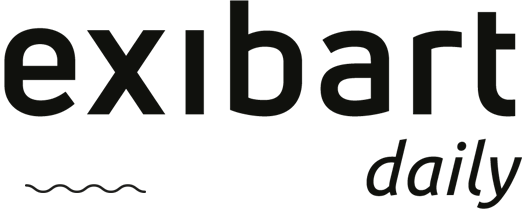Create an account
Welcome! Register for an account
La password verrà inviata via email.
Recupero della password
Recupera la tua password
La password verrà inviata via email.
-
- container colonna1
- Categorie
- #iorestoacasa
- Agenda
- Archeologia
- Architettura
- Arte antica
- Arte contemporanea
- Arte moderna
- Arti performative
- Attualità
- Bandi e concorsi
- Beni culturali
- Cinema
- Contest
- Danza
- Design
- Diritto
- Eventi
- Fiere e manifestazioni
- Film e serie tv
- Formazione
- Fotografia
- Libri ed editoria
- Mercato
- MIC Ministero della Cultura
- Moda
- Musei
- Musica
- Opening
- Personaggi
- Politica e opinioni
- Street Art
- Teatro
- Viaggi
- Categorie
- container colonna2
- container colonna1
Claire Fontaine – Tutto è comune
Claire Fontaine si riallaccia alla tradizione del ready-made e propone un insieme di opere legate dalla preoccupazione di dar senso al nostro mondo frammentario, in cui la solitudine tecnologica domina sulla realtà materiale del contatto umano.
Comunicato stampa
Segnala l'evento
Tutto è comune è una meditazione visiva sull’orrore del presente e i suoi sistemi di dissimulazione. Comune è al tempo stesso ciò che si incontra di frequente e non ha nulla di eccezionale e ciò che può essere condiviso e in quanto tale costituisce il tessuto stesso delle nostre vite. Opponendosi all’idea dello straordinario e dell’“interessante” come soggetto naturale dell’arte contemporanea Claire Fontaine si riallaccia alla tradizione del ready-made e propone un insieme di opere legate dalla preoccupazione di dar senso al nostro mondo frammentario, in cui la solitudine tecnologica domina sulla realtà materiale del contatto umano.
Untitled (Naked after beating) e Untitled (They sexually harass and torture then photograph and publish) sono due light-box che riprendono l’estetica pubblicitaria di aeroporti e centri commerciali ma presentano due immagini trafugate dalle prigioni yemenite in cui i detenuti denunciano per iscritto e tramite incredibili disegni i soprusi cui sono sottoposti. Le fotografie appaiono smagliate da un reticolo di fratture e ci restituiscono ingrandita un’esperienza tipicamente contemporanea: quella dell’osservazione del mondo attraverso uno schermo di telefono rotto. La scultura Evil/Good rappresenta il familiare logo di Apple senza il morso mancante della mela. L’opera si riferisce a un ipotetico tempo prima del peccato originale in cui il male e il bene potevano essere riconosciuti come tali senza rischio di errore e confusione. La tecnologia oggi è l’esempio più flagrante di questo impossibile manicheismo perché permette all’umanità tanto le migliori quanto le peggiori cose.
Postcard rack #metoo (Olympia) è un ready-made che evoca l’estetica delle librerie dei musei e offre al pubblico delle cartoline in distribuzione libera che riproducono il celebre e controverso quadro di Manet con l’aggiunta del “tag” #metoo. L’opera spinge il visitatore a mettere in discussione l’intera banca dati della storia dell’arte e in particolare della pittura, che essendo stata costruita in una prospettiva esclusivamente patriarcale risulta altamente problematica. Olympia è uno dei rari quadri del diciannovesimo secolo in cui l’immagine del nudo femminile guarda direttamente lo spettatore con un’aria di sfida e malizia. La frase #metoo ovviamente partecipa all’ambiguità del dipinto in cui la cameriera nera è anch’essa sottoposta al dominio patriarcale, razziale ed economico; la frase appartiene tanto alla prostituta bianca che alla fantesca che regge i fiori.
News floor (Il Manifesto) è un’installazione site-specific realizzata qui con copie del quotidiano Il Manifesto; il pavimento coperto di giornali trasforma il white cube in uno spazio in cui le opere “galleggiano” su parole scritte come se dei lavori di ridipintura o di restauro fossero in corso nello spazio espositivo. Il gesto dell’artista sottintende anche che il valore d’uso della stampa cartacea è in crisi e che la libertà d’espressione è sempre meno garantita.
In occasione del cinquantesimo anniversario del ’68 Claire Fontaine ha rivisitato alcuni dei classici poster che furono stampati allora nell’atelier dell’Accademia di Belle Arti di Parigi. Includendo le imperfezioni esistenti delle serigrafie originali in quelle di loro produzione, l’artista ha creato dei détournement che declinano i temi dell’oppressione dell’epoca tradotti al tempo dei social media.
Tutto è comune (Everything is Common) is a visual meditation upon the horror of the present and the systems in place for its dissimulation. “Common” is at the same time what is frequently encountered (and is in no way exceptional) and what can be shared, and as such constitutes the very fabric of our lives. Opposing the idea of the extraordinary and the “interesting” as the natural subject for contemporary art, Claire Fontaine reconnects to the tradition of the ready-made and proposes a group of works united by the preoccupation of giving meaning to our fragmentary world, where technological solitude overshadows the material reality of human contact.
Untitled (Naked after beating) and Untitled (They sexually harass and torture then photograph and publish) are two light-boxes quoting the advertising aesthetics of airports and shopping malls, they present two images smuggled out of a Yemeni prison where the inmates report through vivid drawings and minimal writing their endured abuses. The photographs appear laddered by a net of fractures and offer us a typically contemporary experience blown-up: the observation of the world though a broken phone screen. The sculpture Evil/Good represents the familiar Apple logo without the bite missing from the fruit. The work refers to a hypothetical time before original sin when good and evil could be recognised without risk of error or confusion. Technology today is the most flagrant example of this impossible Manichaeism because it makes the worst as much as the best things realizable for humanity.
Postcard rack (#metoo olympia) is a ready-made evoking the aesthetics of the museum gift shop, it offers a free postcard to take, reproducing the famous and controversial painting by Manet with the tag #metoo. The work pushes the beholder to question the entire data bank of art history and painting in particular, which having been built in an exclusively patriarchal perspective is nowadays highly problematic. Olympia is one of the rare paintings from the nineteenth century where a female nude is gazing directly at the spectator with defiance and malice. The sentence #metoo obviously partakes in the ambiguity of the painting where the black maid is also submitted to patriarchal, economic and racial domination; the sentence belongs as much to the white prostitute as to the maid who is holding the flowers.
Newsfloor (Il Manifesto) is a site-specific installation realized with contemporary copies of the Il Manifesto newspaper, which covering the floor with newsprint transforms the white cube into a space where the artworks “float” on written words as if some renovation or wall painting was taking place in the exhibition space. The artist’s gesture also implies that the use value of printed media is undergoing a crisis and that freedom of expression is less and less guaranteed.
On the occasion of the fiftieth anniversary of ’68 Claire Fontaine has revisited some of the iconic posters that were printed at the Beaux Arts’ studios in Paris, including the existing imperfections of the original silkscreens in the ones of her own production, the artist has created détournements that decline the themes of the oppression of the time translated to the era of social media.
Untitled (Naked after beating) e Untitled (They sexually harass and torture then photograph and publish) sono due light-box che riprendono l’estetica pubblicitaria di aeroporti e centri commerciali ma presentano due immagini trafugate dalle prigioni yemenite in cui i detenuti denunciano per iscritto e tramite incredibili disegni i soprusi cui sono sottoposti. Le fotografie appaiono smagliate da un reticolo di fratture e ci restituiscono ingrandita un’esperienza tipicamente contemporanea: quella dell’osservazione del mondo attraverso uno schermo di telefono rotto. La scultura Evil/Good rappresenta il familiare logo di Apple senza il morso mancante della mela. L’opera si riferisce a un ipotetico tempo prima del peccato originale in cui il male e il bene potevano essere riconosciuti come tali senza rischio di errore e confusione. La tecnologia oggi è l’esempio più flagrante di questo impossibile manicheismo perché permette all’umanità tanto le migliori quanto le peggiori cose.
Postcard rack #metoo (Olympia) è un ready-made che evoca l’estetica delle librerie dei musei e offre al pubblico delle cartoline in distribuzione libera che riproducono il celebre e controverso quadro di Manet con l’aggiunta del “tag” #metoo. L’opera spinge il visitatore a mettere in discussione l’intera banca dati della storia dell’arte e in particolare della pittura, che essendo stata costruita in una prospettiva esclusivamente patriarcale risulta altamente problematica. Olympia è uno dei rari quadri del diciannovesimo secolo in cui l’immagine del nudo femminile guarda direttamente lo spettatore con un’aria di sfida e malizia. La frase #metoo ovviamente partecipa all’ambiguità del dipinto in cui la cameriera nera è anch’essa sottoposta al dominio patriarcale, razziale ed economico; la frase appartiene tanto alla prostituta bianca che alla fantesca che regge i fiori.
News floor (Il Manifesto) è un’installazione site-specific realizzata qui con copie del quotidiano Il Manifesto; il pavimento coperto di giornali trasforma il white cube in uno spazio in cui le opere “galleggiano” su parole scritte come se dei lavori di ridipintura o di restauro fossero in corso nello spazio espositivo. Il gesto dell’artista sottintende anche che il valore d’uso della stampa cartacea è in crisi e che la libertà d’espressione è sempre meno garantita.
In occasione del cinquantesimo anniversario del ’68 Claire Fontaine ha rivisitato alcuni dei classici poster che furono stampati allora nell’atelier dell’Accademia di Belle Arti di Parigi. Includendo le imperfezioni esistenti delle serigrafie originali in quelle di loro produzione, l’artista ha creato dei détournement che declinano i temi dell’oppressione dell’epoca tradotti al tempo dei social media.
Tutto è comune (Everything is Common) is a visual meditation upon the horror of the present and the systems in place for its dissimulation. “Common” is at the same time what is frequently encountered (and is in no way exceptional) and what can be shared, and as such constitutes the very fabric of our lives. Opposing the idea of the extraordinary and the “interesting” as the natural subject for contemporary art, Claire Fontaine reconnects to the tradition of the ready-made and proposes a group of works united by the preoccupation of giving meaning to our fragmentary world, where technological solitude overshadows the material reality of human contact.
Untitled (Naked after beating) and Untitled (They sexually harass and torture then photograph and publish) are two light-boxes quoting the advertising aesthetics of airports and shopping malls, they present two images smuggled out of a Yemeni prison where the inmates report through vivid drawings and minimal writing their endured abuses. The photographs appear laddered by a net of fractures and offer us a typically contemporary experience blown-up: the observation of the world though a broken phone screen. The sculpture Evil/Good represents the familiar Apple logo without the bite missing from the fruit. The work refers to a hypothetical time before original sin when good and evil could be recognised without risk of error or confusion. Technology today is the most flagrant example of this impossible Manichaeism because it makes the worst as much as the best things realizable for humanity.
Postcard rack (#metoo olympia) is a ready-made evoking the aesthetics of the museum gift shop, it offers a free postcard to take, reproducing the famous and controversial painting by Manet with the tag #metoo. The work pushes the beholder to question the entire data bank of art history and painting in particular, which having been built in an exclusively patriarchal perspective is nowadays highly problematic. Olympia is one of the rare paintings from the nineteenth century where a female nude is gazing directly at the spectator with defiance and malice. The sentence #metoo obviously partakes in the ambiguity of the painting where the black maid is also submitted to patriarchal, economic and racial domination; the sentence belongs as much to the white prostitute as to the maid who is holding the flowers.
Newsfloor (Il Manifesto) is a site-specific installation realized with contemporary copies of the Il Manifesto newspaper, which covering the floor with newsprint transforms the white cube into a space where the artworks “float” on written words as if some renovation or wall painting was taking place in the exhibition space. The artist’s gesture also implies that the use value of printed media is undergoing a crisis and that freedom of expression is less and less guaranteed.
On the occasion of the fiftieth anniversary of ’68 Claire Fontaine has revisited some of the iconic posters that were printed at the Beaux Arts’ studios in Paris, including the existing imperfections of the original silkscreens in the ones of her own production, the artist has created détournements that decline the themes of the oppression of the time translated to the era of social media.
28
settembre 2018
Claire Fontaine – Tutto è comune
Dal 28 settembre al 30 ottobre 2018
arte contemporanea
Location
T293
Roma, Via Ripense, 6, (Roma)
Roma, Via Ripense, 6, (Roma)
Orario di apertura
da martedì a venerdì ore 12 – 19
Vernissage
28 Settembre 2018, h 18
Autore








